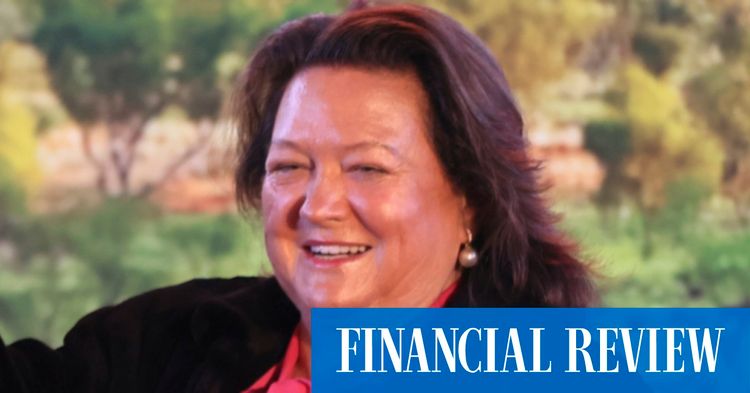Gina Rinehart says farmers can't afford net zero, wants governments ...

“It’s going to cost a fortune that farmers and pastoralists don’t have, without a mining company in their back pocket. They just don’t have this money to be able to invest.”
Mrs Rinehart, an AFR Rich Lister with a personal net worth of $37.4 billion, said the high costs of net zero policies could force farmers off the land, pushing up the price of produce in supermarkets and leading to chronic food shortages.
“I’m suggesting those in agriculture don’t need to spend more than $200,000 of their own money on net zero requirements. That won’t buy all that I’ve just mentioned, let alone part of it.
“The rest is to be met by governments – real assistance with policies they want to implement through net zero, otherwise most farmers and others in agriculture cannot afford net zero,” she said.
Support for nuclear energyLabor and the Coalition have committed to net zero carbon emissions by 2050, but the Albanese government has pledged to reach 82 per cent renewables by 2030, a task that some energy experts have said is close to impossible.
Mrs Rinehart also used her speech to reaffirm her support for Australia to embrace nuclear energy, despite it being banned under federal law.
“Let’s not upset many farmers with bird-killing wind generators and massive solar panel stretches, and bring on clean, safe nuclear energy, please Australia,” she said.
Opposition Leader Peter Dutton has said nuclear power needs to be on the agenda to help reach net zero, but Prime Minister Anthony Albanese and Energy and Climate Change Minister Chris Bowen have steadfastly refused to change Labor’s long-held position against it.
A Labor and Greens-dominated Senate committee last week rejected Queensland LNP senator Matt Canavan’s push to abolish laws banning nuclear power, saying it was not supported by Australians.
A dissenting Coalition senators’ report said the ban did not make sense and would condemn households and businesses to higher prices for decades.
Mrs Rinehart is executive chairman of iron ore company Hancock Prospecting but also has agricultural interests including cattle properties. She said money earned in regional areas should be returned to the bush to help fund services, including better hospitals.
“I would like to see money earned in the bush returned to the bush,” she said.
She also called for the removal of limits on work hours for veterans, pensioners and university students to fill jobs in the bush.









































